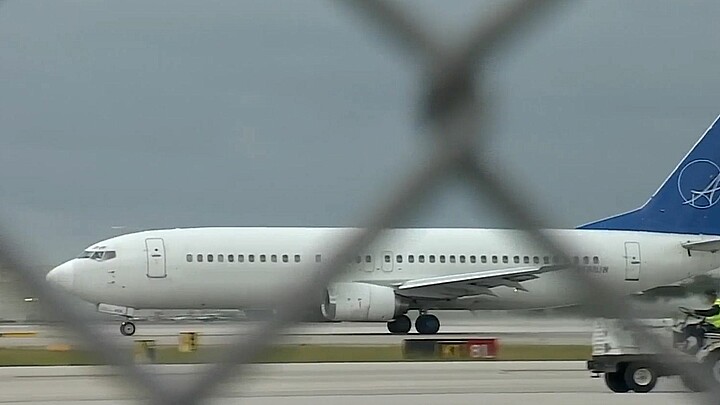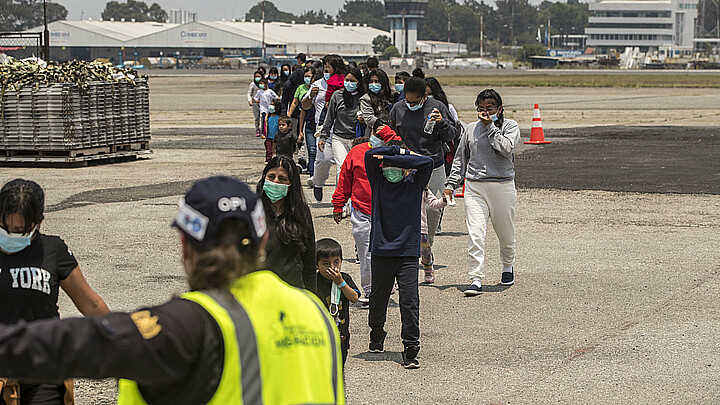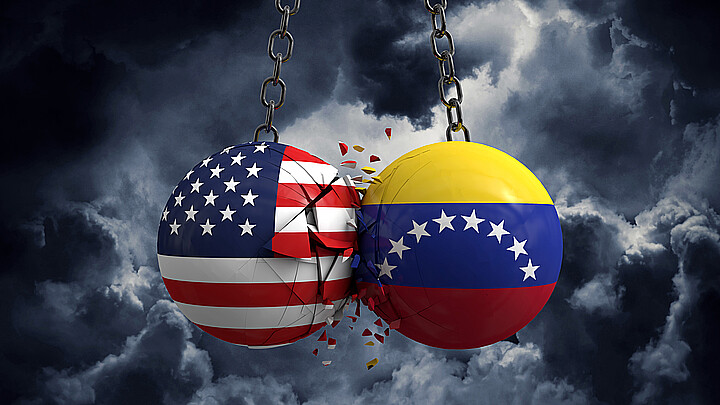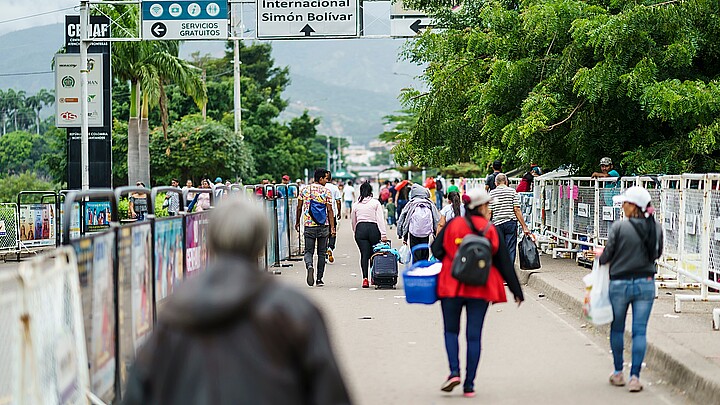Immigration
Panama repatriates undocumented migrants to South America on U.S. funded flights
The U.S. funded flights are being coordinated with the Panamanian government and come several weeks after newly elected Panamanian President José Raúl Mulino, a known anti-immigration crusader, was sworn into office

August 21, 2024 9:13am
Updated: August 21, 2024 9:29am
In an attempt to halt the massive wave of illegal immigration from South America, Panama began repatriating undocumented migrants on Tuesday on U.S. funded flights, according to reports.
The U.S. funded flights are being coordinated with the Panamanian government and come several weeks after newly elected Panamanian President José Raúl Mulino was sworn into office.
Mulino, an anti-immigration crusader who vowed to “close” the Darién Gap natural land bridge that connects Panama and Colombia, has quickly become one of the most significant figures in the region’s battle to halt migration.
His position as president of Panama places him in a unique position to create a barrier between South and Central America by walling off the Darién Gap, a perilous jungle area that stretches across his country’s Darién Province and into the northern part of Colombia’s Chocó Department.
It is about 60 miles long and 50 miles wide consisting of a dense rainforest, large watershed and high mountains. It is widely considered one of the most inhospitable places in the world and is home to only about 8,000 among five native tribes.
Despite its dangerous terrain, the Gap has become one of the most traveled migration routes in the world and has been primarily used by Venezuelans escaping communism and the Maduro regime, in their hopes to reach a better life in the United States or elsewhere in Central America.
Last year, more than 520,000 people passed through the area, doubling the number who traveled through in 2022, which saw 250,000 crossings. Those numbers were exponentially higher than previous statistics. In 2019, the Gap only saw 24,000 jungle crossers.
With less than three months away from the U.S. presidential elections, the Biden administration has now begun to finance the Panamanian flights as part of an effort to curb migration.
While the numbers of those being repatriated are fractional compared to how many are crossing the actual Gap, the government hopes it will be the start of a process that will remove some of the more dangerous migrants trying cross over from South America.
According to a Aug. 20 report filed by the BBC, the first Tuesday flight consisted of 29 Colombians with criminal records.
Under a joint agreement signed July 1 by U.S. Homeland Security Secretary Alejandro Mayorkas and the Panamanian foreign minister, Washington is obligated to funding $6 million for transportation, equipment, and logistics to “remove foreign nationals who do not have a legal basis to remain in Panama.”
It currently remains to be seen as to whether or not the flights will be publicized as part of the Democratic Party’s efforts to promote Vice President Kamala Harris as their new presidential nominee.
Harris, who is expected to be nominated this week as her party’s nominee for president at the Chicago based Democratic National Convention, is replacing President Biden on top of the ticket. The switch came after Biden’s performance during a live televised debate against former President Donald Trump in which the 46th president seemed confused at times.
Harris, who has been repeatedly called the “border czar” by Republicans has taken heat for the massive influx of illegal immigrants crossing the southwest U.S. border while Democrats have denied she ever held the title or position.
Still, voter polls have suggested immigration remains an important issue among the electorate and both parties are vying to assure the American people they have the right plan to halt the wave of migrants crossing the border that continue to pour in from Mexico.
The new agreement with Panama is part of an effort to halt illegal immigration at the U.S. border by returning some migrants before they travel northward through Central America and into Mexico.
The flights also come in the midst of Mulino proactively shutting down natural roads and secret passageways built by coyotes to transport migrants through the Darién Gap. Panamanian authorities and other governments including the U.S. have hoped that by shutting down the Darién Gap passageways they could stem migration from even entering Central America.
Mulino, whose campaign was largely driven by assurances to reduce the number of migrants crossing through Panama, described the migrants’ situation as “sad.”
“Most of them are from Venezuela,” he explained. “They're human beings ... there are families torn apart, children of five or six years of age whose parents have died during the crossing. We don't even know who they are or what their names are.”
Mulino has also said one of his reasons for shutting down the Gap was to “protect” migrants since there has been a significant amount of crime and violence erupting against them during their journey through the jungle.
In May, ADN America reported that UNICEF was sounding the alarm that between January and April more than 30,000 children had crossed the Darién Gap, placing them in significant danger.
The Panamanian president previously said the new U.S. funded flights would first transport migrants to Colombia, the South American country from which they entered Panama, but it remains unclear if they will be repatriated to their home countries from there.
If so, it could mean some Venezuelans who struggled to escape communism and Nicolás Maduro’s communist regime would be sent back. According to the Panamanian government, Venezuelans make up the largest number of migrants crossing the Darién Gap, followed by Colombians, Ecuadoreans and Haitians.
The political crisis in Venezuela remains a serious concern to officials who are closely monitoring the blossoming election crisis since U.S. officials have feared that a contested election could create another mass exodus out of panic.
Those fears stem from actual polling which suggests that if Maduro declared victory, high numbers of Venezuelans would abandon their homeland.
The July 28 presidential election in Venezuelan has been the center of news coming from Latin America for the past three weeks ever since the Maduro regime controlled National Electoral Council (CNE) declared victory for the communist dictator.
The CNE’s reported results have widely been rejected as fraudulent by Western democratic nations in both Europe and the Western Hemisphere since vote tallies collected by the opposition have proven they won by a significant margin.
In an attempt to incentivize Maduro to step down from power, Mulino offered the communist dictator “safe passage” to leave Venezuela to a third country, but his offer was turned down by Maduro who instead told the Panamanian president not to “mess” with Venezuela.










